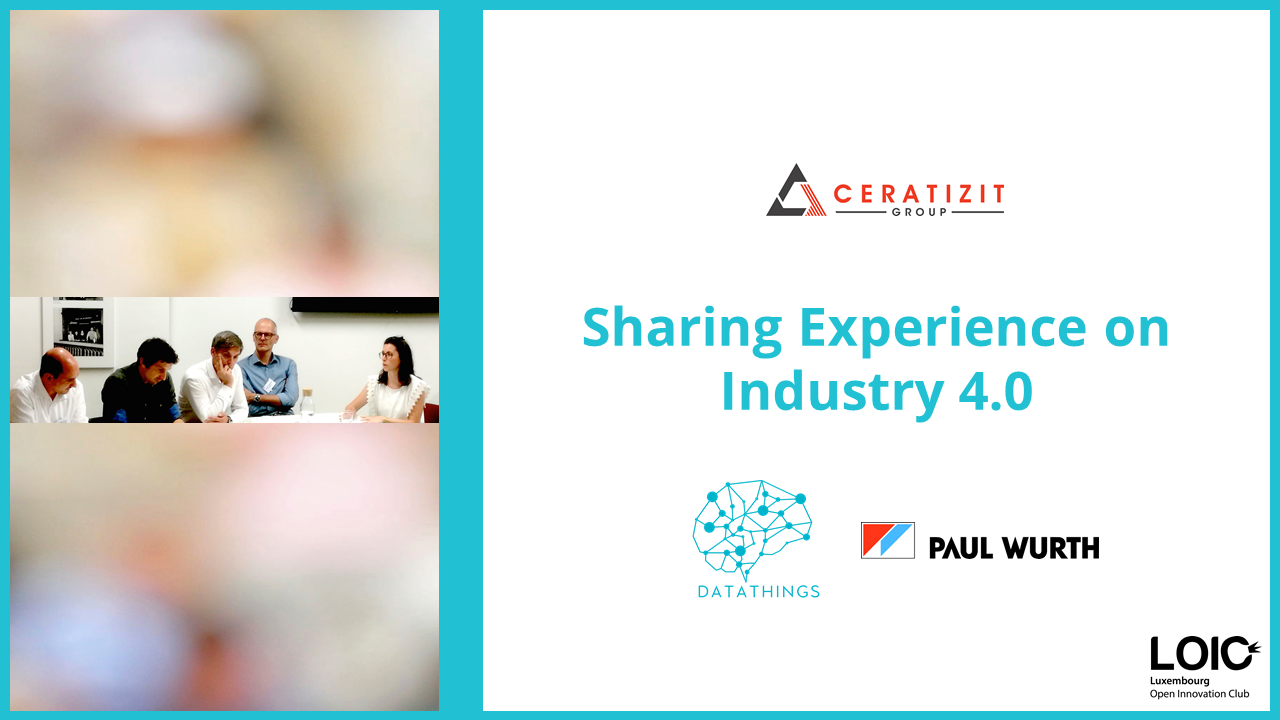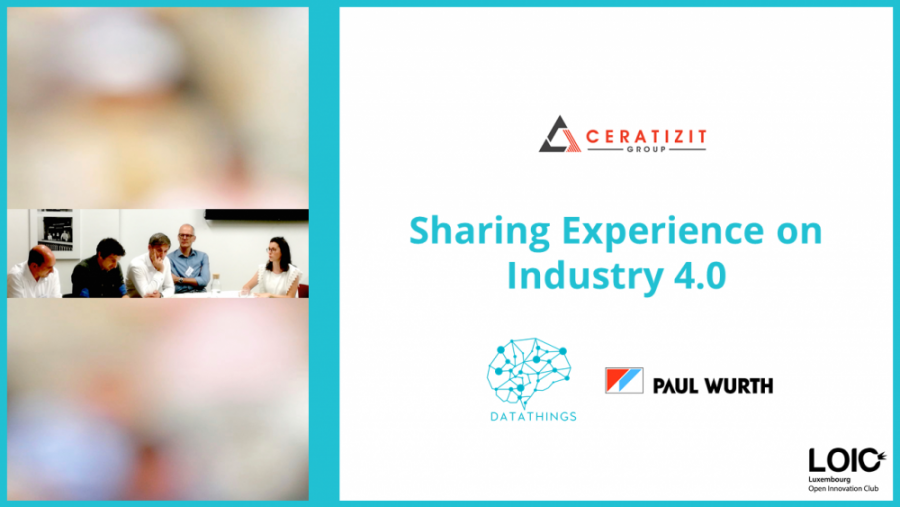
Make leading industrial companies fit for the future while helping startups gain a foothold in the market: this is the overall objective of the Luxembourg Open Innovation Club (LOIC). Coordinated by the House of Startups (HoST), LOIC provides a platform to exploit synergies and stimulate regular exchange, among others in the form of conferences, such as held end of June on Industry 4.0.
Words like "disruptive" and "revolutionary" are often used in the context of innovation. But while such terms refer to the results of innovation – i.e. new technologies and products – getting there involves a process in which a wide variety of players must work together in a complementary fashion. "Open Innovation" is the magic word that describes the essence of this process, one that aims to capture the synergies between established companies and young entrepreneurs.
Members select topics themselves
As its name suggests, LOIC is committed to sustaining and fostering this openness through wide-ranging initiatives. As Karin Schintgen, Head of the HoST, explains: "On the one hand, we have several leading international companies based here in Luxembourg. On the other, the country’s innovation ecosystem generates interesting new companies with considerable international potential. Our goal is to bring both worlds together so that their respective experience and pioneering spirit can complement each other as constructively as possible."
LOIC Members range from significant international traditional industries to financial companies and local market leaders in, e.g., the food and retail sector.
Sharing experience from Ceratizit: “Digitization calls for a change in mindset”
Ceratizit is one example of a company from the market leader category. This hard metal specialist from Mamer supplies tools and components to machine builders from all over the world. The Luxembourg-Austrian family business employs some 9,000 people around the globe with a research & development (R&D) department located in Luxembourg. The majority of all innovation processes are steered from Luxembourg and more and more local startups are involved.
At the LOIC conference on Industry 4.0 held in June, Laurent Federspiel, Industry 4.0 expert at Ceratizit explained how initiating comprehensive digitization processes in traditional companies is both essential and challenging.
Why? Predominantly because it requires changing mindsets, which in turn calls for a holistic approach to automating the entire process from order to delivery. But also because it involves sensitive topics such as machine connectivity and processing big data.
Sharing experience from Paul Wurth: “Innovation requires expertise - and time”
Laurent Federspiel provided important insights into steering change processes on an industry-wide side. Insights which gave LOIC Members an idea of how to approach such projects with industry partners. These remarks were fully confirmed by Sébastien Wiertz who, as a long-standing innovation leader at Paul Wurth and now head of the Paul Wurth InCub, was able to shed light on the realities from both sides of the equation: the established and emerging industries. The conclusion of his presentation was that innovations, in most cases, are appreciated. However, they also take time and a wide range of expertise to implement.
According to Sébastien Wiertz, it is precisely this expertise that is often found in young, dynamic startups and that can go in many different directions. The spectrum ranges from the synchronized control of production sites around the world to real-time data acquisition and exchange and the use of drones in particularly harsh and dangerous environments. The advantages are obvious: remote site control leads to lower travel costs and when drones perform dangerous service tasks, this significantly increases safety.
Diversity of expertise and sector leads to innovation
For both Laurent Federspiel and Sébastien Wiertz, there can be no doubt that men and machines will continue to work hand in hand in the future. Technology will not replace humans, but rather redefine the fields of application of human work. Humans will contribute to Industry 4.0 in a knowledge-based way: a key finding of the concluding discussion with Laurent Federspiel, Sébastien Wiertz, Grégory Nain and François Fouquet, leaders of the startup DataThings – as well as of the exchange of club Members among themselves.
The aim of LOIC is therefore to further stimulate such exchanges. Emilie Bechet, Head of LOIC, explains: "In order to offer our Members the widest possible insights, it is important for us to involve the entire innovation ecosystem while at the same time attracting the broadest possible spectrum of industry Members for LOIC.”

